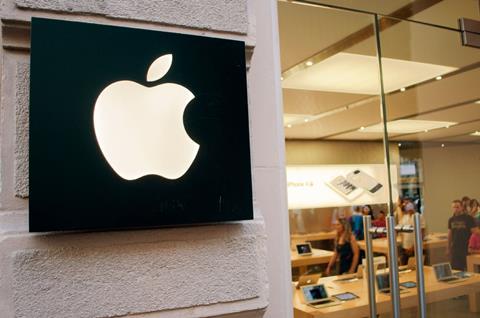In the battle to unlock a terrorist’s iPhone, it is plausible to join either side of the debate. But lawyers have one reason to support Apple.
I am pleased to see that my least worst candidates in the US election – Hillary Clinton and Bernie Sanders, in that order – said that they were on both sides in the case of Apple against the FBI, and my all-time worst candidate (you can guess who) called for a boycott of Apple.
For those who don’t follow the news, Apple has been ordered by a Californian federal judge to provide the FBI with a file to help investigators force open the password lock on the iPhone of one of the San Bernardino killers. Apple’s help would bypass or disable the auto-erase function, and ensure that software will not deliberately increase delays between password attempts. Apple has refused.
The arguments have gone backwards and forwards. In essence, they summarise the old liberty versus security debate, and will reach a pitch once more in the UK this week with the publication of our own revised draft investigatory powers bill. It is worth reciting the Apple v FBI arguments, because it is claimed that the UK bill could force Apple to do what the FBI is trying to achieve through the courts, but secretly without anyone ever finding out. Here are some of the debating points (there are a zillion flying around on either side).
Those who support the FBI say: law enforcement needs the power in particular cases to read the data on iPhones, to prevent further serious crimes; Apple has in the past complied with around 70 requests under the All Writs Act, the relevant US law; in 2014, it deliberately engineered the possibility of further compliance out of its products; this is only a marketing ploy, to differentiate itself from Android, which is used by third-party manufacturers.
Those who support Apple say: it is contrary to Apple’s rights as a company and our rights as free individuals that the government should be able to force Apple against its will to write software to enable the government to see all our iPhone data (even if it is only after a specific aspect); what begins with Apple ends with every tech company; in a world where devices will soon govern every aspect of our lives - driverless cars, the internet of things like fridges and central heating - the government will have access to all the information behind our lives; in any case, Apple’s current security assists law enforcement much more than it hinders it because, when devices are stolen, the data cannot be accessed by thieves.
We lawyers can plausibly join the side of either Apple or the FBI in the general debate, or argue that the dilemma is unanswerable morally with any decisiveness, and must therefore be settled by the courts to the best of their abilities in the light of existing laws and case law.

But on one aspect I believe we must support Apple. In these fierce debates, no one cares much about lawyers’ professional secrecy, or even seriously considers it. If lawyers don’t insist on its protection, no one else will. Our line should be that communications by the San Bernardino killer with his lawyer (assuming there were any, which I doubt) must remain sacrosanct and unread.
I won’t go over the reasoning behind this line in detail, since it should be well known to all lawyers. In Europe (I am no expert on the US), the arguments are based on the following: Articles 6 and 8 of the European Convention on Human Rights, the jurisprudence of the Court of Justice of the European Union (principally the AM&S case (155/79), the Council of Europe Recommendation Rec (2000)21 of 25 October 2000 concerning the freedom of exercise of the profession of lawyer in Europe, and so on. All civilised countries recognise that clients must be able to communicate with their lawyers in total confidence.
Of course, in this case the client is dead, and so there is no fair trial in prospect, but the principles of the previous paragraph apply nevertheless. And although the reasoning I have supplied is Europe-wide, the legal position within the UK is the same, even when shorn of European arguments (in case they enrage Brexit supporters).
The Law Society and the Bar Council have so far fought hard to defend the profession’s values within the context of the draft bill. If there are further terrorist attacks, the profession’s arguments will be made in a more hostile environment. We must argue for the strongest protection possible. For instance, if there has to be interception of lawyer-client communications, it should be subject to prior judicial authorisation.
So, support Apple or the FBI as you wish, but on one aspect of the argument - the one regarding the strongest protection possible for professional secrecy - lawyers should unite behind the general Apple line.
Jonathan Goldsmith is a consultant and former secretary-general at the Council of Bars and Law Societies of Europe, which represents around a million European lawyers through its member bars and law societies. He blogs weekly for the Gazette on European affairs































8 Readers' comments